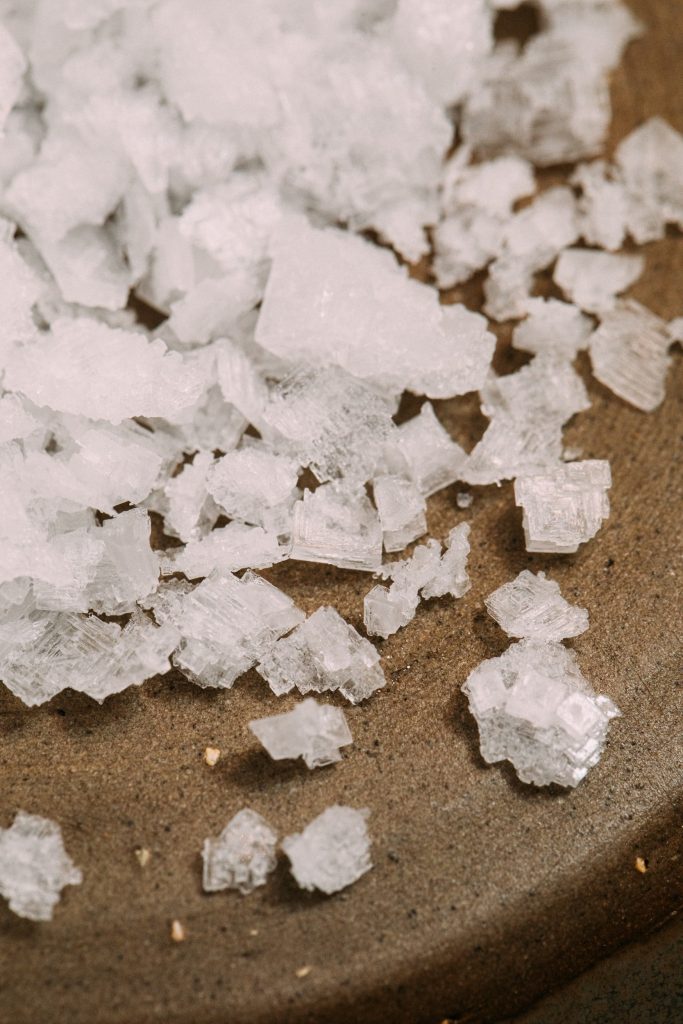
As kids, my brother and I naturally competed. I’m not sure he was even aware of our many competitions, but to me, he was my antithesis. This sibling rivalry shaped me—it gave me an anchor, a milestone, and someone to push me to question things. You know that saying, “Do not walk behind me, I may not lead. Do not walk in front of me, I may not follow. Just walk beside me and be my friend.” Well, my brother somehow managed to do all three.
One of the quirks of our dynamic? He loved salt, so I didn’t. It wasn’t a conscious rebellion—it just happened. While he reached for the salt shaker, I naturally avoided it. The only exceptions? Ready-made foods (like baked goods) and avocados—because let’s be honest, salt on avocado is just delicious.
Fast-forward to adulthood: I no longer compete with—or even speak to—my brother, but my salt-avoiding habit stuck. Even now, I tend to under-salt my food, which means the people I cook for (namely, my daughter) often reach for the salt shaker.
The Connection Between Salt and Mental Health
As someone who cares about mental health, I’m always looking for ways diet influences mood and emotional well-being. We already know sodium affects blood pressure, but could it also be linked to stress and anxiety?
Research suggests the answer is yes.
How Salt Increases Stress
A study on sodium lactate and stress found that sodium itself—not just the lactate component—can act as a stressor. Another study on panic attacks and sodium revealed that sodium, not lactate, was the trigger. That’s a significant finding: excess sodium may contribute to heightened anxiety.
While we often associate salt with high blood pressure and heart disease, we rarely consider its impact on mood. Sure, kids may not be at high risk for heart disease, but elevated blood pressure can affect stress levels at any age.
Reducing Salt to Reduce Anxiety
Recently, I reduced my daughter’s sodium intake—not as a controlled scientific experiment, just as part of an overall shift toward healthier habits. And while correlation doesn’t equal causation, I have noticed a reduction in her stress levels.
To take things a step further, I decided to swap out regular table salt for potassium-based salt and see what happens. If sodium reduction helped, I wanted to see whether replacing it with potassium would maintain or even enhance the benefits.
Making the Switch to Low-Sodium Salt
We recently switched to low-sodium, potassium-based salt, and I actually prefer the taste—it’s less of that tongue-stinging sharpness you get with regular table salt. Given my past kidney issues and my weakness for Ruffles cheddar and sour cream chips, I find this swap appealing.
➡️ Want to try a healthier salt alternative? Check out this potassium-based salt option.
Of course, I still use regular salt for things like boiling pasta or baking, but for seasoning at the table, potassium-based salt is now my go-to.
Should You Cut Back on Salt?
There’s nothing wrong with a little salt. But too much? It could be affecting stress and anxiety levels—both for adults and kids. Just because kids are naturally more active doesn’t mean they’re immune to the emotional effects of excess sodium.
If you struggle with stress or anxiety, consider paying attention to your salt intake. A small change could make a big difference in how you feel.
Have you tried reducing salt in your diet? Did you notice a difference? Let me know in the comments!